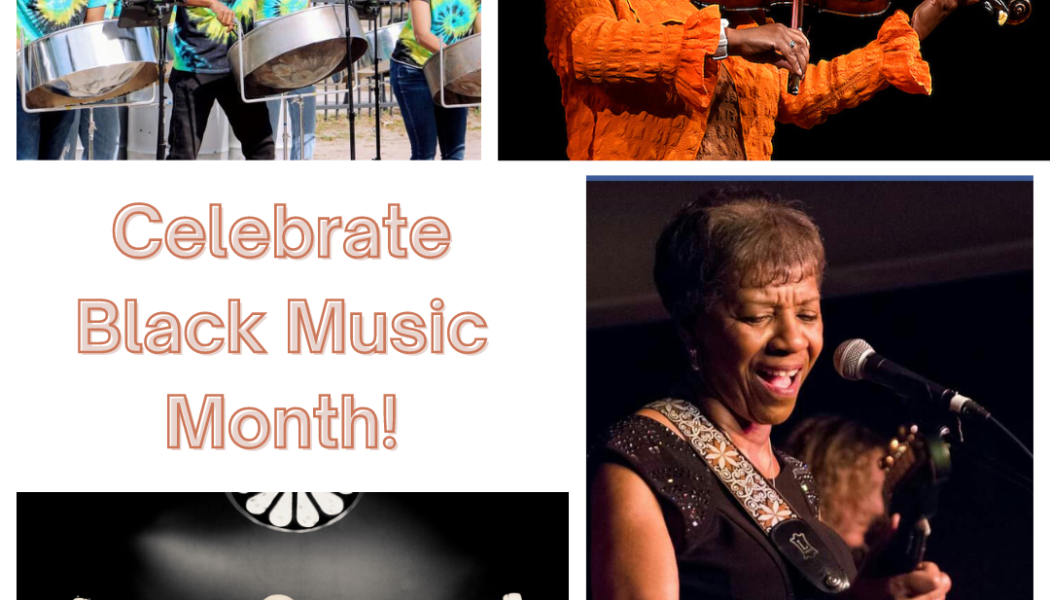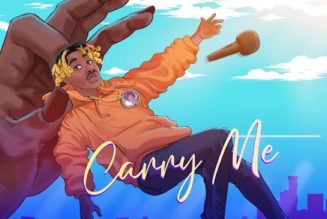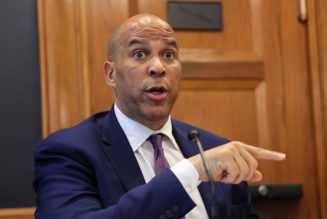
Juneteenth is often noted as America’s second Independence Day—celebrating when the last formerly enslaved people in western Texas were finally notified of the Emancipation Proclamation on June 19, 1865. Celebrated in African American communities since then, often including cultural elements such as food, readings, and music, Juneteenth was declared a federal holiday by President Biden in 2021. June also commemorates Black Music Month, so it is fitting to present a playlist of Black music that touches on the themes of freedom and justice and culture that Juneteenth signifies.
Aretha Franklin
When Otis Redding first wrote and recorded “Respect” in 1965, it was a straightforward song about a man wanting respect from his woman when he comes home from work. When 1999 National Medal of Arts recipient Aretha Franklin took it on in 1967, it became something much different: it became an anthem for Black womanhood. The more insistent beat and swaggering vocal, along with the spelling out of the word “respect,” made the song truly hers.
Today, people associate the song with Franklin rather than the author of the song; Redding even noted this at the 1967 Monterey Pop Festival: “This is a song that a girl took away from me, a good friend of mine, this girl, she just took this song.”
All you have to do is watch this clip of Franklin performing the song from 1967 to know that he’s right.
Amina Claudine Myers, 2024 NEA Jazz Master, was one of the first members of the legendary musician cooperative in Chicago, the Association for the Advancement of Creative Musicians (AACM). Myers was heavily influenced by the rural Black culture she grew up in before moving to Chicago, and incorporated that into her music, like the children’s game Jumpin’ in the Sugar Bowl. She was also affected by the gospel she heard growing up, and formed the Generation IV group to honor the gospel singers of the 1950s she admired, like Clara Ward and the Davis Sisters.
Here is Myers performing during the 2024 NEA Jazz Masters Tribute Concert at the Kennedy Center, performing “Jumpin’ in the Sugar Bowl/African Blues/Jug/Have Mercy Upon Us” with Jerome Harris on bass and guitar and Thurman Barker on drums.
Singing & Praying Bands of Maryland and Delaware
The Singing and Praying Bands of Maryland and Delaware, who received the NEA National Heritage Fellowship in 2014, practice a form of religious worship that encompasses one of the oldest and most historic African American performance traditions that is still active today, predating gospel, blues, and jazz. The bands began with secret prayer meetings in the woods in antebellum times. The tradition evolved to that each session was initiated with lined-out hymns (a way of singing in which a leader would chant a line of a song and the congregation would sing it back) and concluded with a form of ring shout that blended West African traditions of song and movement in a circle.
This tribute video touches on the importance of this tradition in Black culture and history.
2024 NEA Jazz Master Terence Blanchard is somewhat of a polymath in music: not only is he an exceptional musician as a jazz trumpeter, working with greats—and fellow NEA Jazz Masters—such as Art Blakey and Lionel Hampton, he has composed music for film and television, collaborated with dance companies, and written grand operas. Despite this formal variety, he has consistently addressed issues of importance to the Black community in his music, whether it be gun control or racial justice. This is especially true for his hometown of New Orleans, for which he wrote the soundtrack to Spike Lee’s documentary When the Levees Broke: A Requiem in Four Acts about the devastation to the local community by Hurricane Katrina, which led him to spend time promoting music education as well. As he notes in the tribute video, “That’s where my life kind of turned around in terms of why I create music. When you see the power in it and how it can help people deal with these tough topics like this, you start to feel a responsibility to address these things.”
The Excelsior Band, 2022 NEA National Heritage Fellows, is a brass marching band created in 1883 in Mobile, Alabama, as part of its Mardi Gras celebration. But it is has grown to be something more than that: it is an intricate part of the city’s culture. Bridging the racial divide between the historically Black and White Mardi Gras celebrations, the band plays more than 300 events a year. They also have a year-round education program, Jazz Studio, to expose youth to the tradition of jazz.
In this tribute video, the band members talk about the long tradition of the band and its place in the city’s culture.
While being one of the premier avant-garde jazz musicians and composers coming out of the 1960s, 2016 NEA Jazz Master Archie Shepp also has had a long career as an educator focused on ethnomusicology, looking at the history of African American music from its origins in Africa to today. He has incorporated African music into his jazz compositions as well as working with African musicians. Additionally, his music often addressed issues in the Black community: for example, Attica Blues was a response to the Attica Prison riots, while The Cry of My People addressed civil rights.
Watch the tribute performance of “Hambone/Blues for Brother George Jackson” by Archie Shepp at the 2016 NEA Jazz Masters Tribute Concert by Ambrose Akinmusire (trumpet), Rudresh Mahanthappa (alto sax), Pedrito Martinez (percussion), Jason Moran (piano), David Murray (tenor sax), Linda Oh (bass), Karriem Riggins (drums), and Roswell Rudd (trombone).
The Hill Country in Mississippi is known for its blues, but it is a different type of blues from the usual 12-bar blues you’ll hear in Chicago. It has its own particular sound: a repetitive, droning guitar riff over a driving beat, with soulful vocals over top. 2023 NEA National Heritage Fellow R.L. Boyce was a master purveyor of the style, influenced by the great musicians working in Mississippi, such as Fred McDowell, R.L. Burnside, and Junior Kimbrough. He was also influenced by the Black fife and drum groups that were prevalent in the area from the Civil War until the 1970s. These bands were an important part of the Black culture of the region, performing at social gatherings like picnics, weddings, and funerals.
In the tribute video, watch Boyce talk about his experiences with Jim Crow and how his music reflects his community and culture in rural Mississippi. And listen to him play his guitar.









